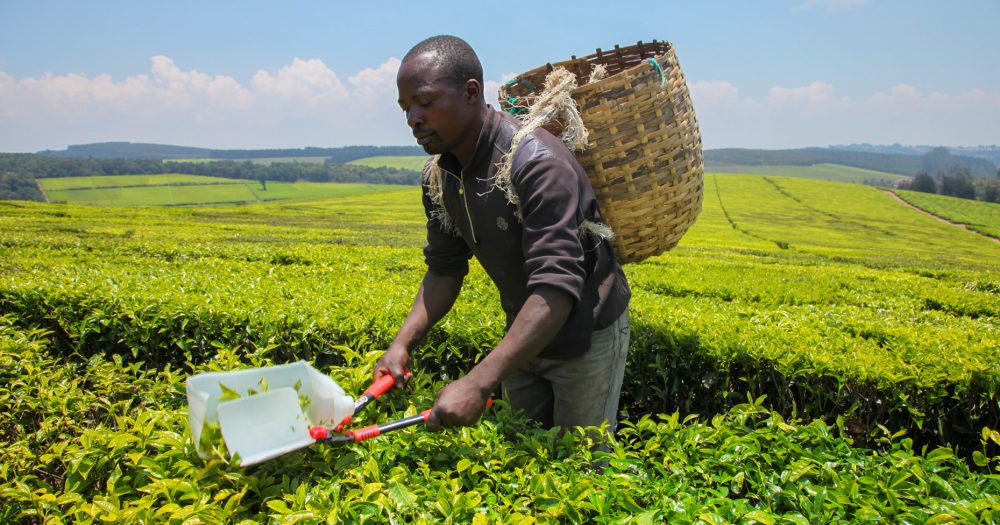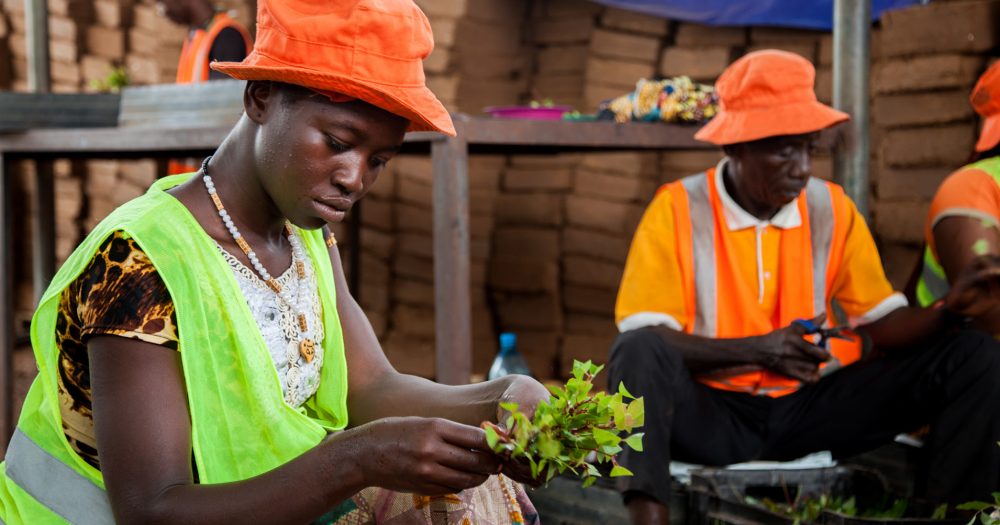Our investment
Description of the investment.
Description of the investment.
Our investment in SunCulture is the first transaction under our Memorandum of Understanding with the Shell Foundation and our first direct investment in the carbon credits market. The facility will allow SunCulture to test how carbon credit revenue can be used to lower the upfront cost of solar water pumps, improving the affordability of solar irrigation systems, mitigating greenhouse gas emissions, and improving the adaptation and resilience of smallholder farmers.
Impact information
Applies to investments made from 2019 onwards. The tabs in this section define what we expect to achieve through the investment, assessing the potential impact of the investment against six dimensions of impact. You can find more details on our methodology of assessing impact here.
Applies to investments made from 2019 onwards. The tabs in this section define what we expect to achieve through the investment, assessing the potential impact of the investment against six dimensions of impact. You can find more details on our methodology of assessing impact here.
What?
| Impact |
|---|
|
|
|
How?
| How? |
|---|
|
Our capital will help in pre-financing the carbon credits generated from SunCulture’s solar water-pumps. These credits will help the company in discounting the price of pumps. We estimate that overcoming this pricing hurdle would enable an even larger number of smallholder farmers to purchase the product and access the associated climate change resilience benefits. |
Who?
| Stakeholder | Geography | Characteristics |
|---|---|---|
| Farmers |
Kenya |
As per a 60 Decibels survey conducted in Dec 2022: a) 32 per cent of the farmers live in relative poverty, on less than $3.20 per day [2011 PPP]; b) In the last 12 months, 97 per cent of the farmers cultivated less than five hectares, and 85 per cent of the farmers cultivated less than two hectares. |
How much?
| Scale | Depth/Duration |
|---|---|
|
Our investment will enable SunCulture to sell 9,000 solar water-pumps with each pump expected to abate 2.9 tonnes of CO2 emissions per year for seven years. |
Depth:
|
Contribution/additionality
| Contribution/additionality |
|---|
|
Financial additionality: There is limited financing available for innovative financing instruments involving carbon credits. Grant capital isn’t available in adequate quantity to help scale the project. |
Risk
Execution RiskGoing deeper at the last mile to unlock market among even poorer farmers will require sensitisation among the sales agents to service those markets. This risk can be mitigated by sensitising the sales force & reworking their sales incentives. External RiskExternal risks such as seasonality will affect the demand across the 3 waves and may compound the outcomes. This risk is medium and can be mitigated by adjusting for known external factors in either project design or results interpretation phase. |
Environmental and social information
-
Environmental and social summary
A high-level description of the environmental and social aspects of the investment. This may include a summary of key environmental and social risks identified during environmental and social due diligence (ESDD); key elements of an environmental and social action plan (ESAP); or ways in which we plan to support the investee improve environmental and social standards, such as through their environmental and social management system (ESMS); as well as any other priority areas agreed with the investee.
-
Environmental and social risk
A risk category rating, which indicates the level of environmental and social risk associated with an investment. For an explanation of the categorisations used, see here. We consistently provide an environmental and social risk category for all investments screened from 2023 onwards.
Environmental and social summary
BII’s ESG-I team have been closely supporting on strengthening SunCulture’s approach to managing E&S risks in their operations, specifically around health and safety, supply chain, safeguarding and grievance management through relevant training and guidance.
Environmental and social risk
Medium-Low
Reporting and Complaints Mechanism
The Reporting and Complaints Mechanism allows anyone outside BII to report alleged breaches of the business integrity or environmental and social provisions of BII’s Policy on Responsible Investing. This includes breaches made by BII, a BII investee, or a portfolio company of a fund in which BII has invested. The Reporting and Complaints Mechanism Rules are available here. Reports and complaints can be submitted by email to reportsandcomplaints@bii.co.uk or by mail. See more details on our Reporting and Complaints Mechanism here.
For any other general enquiries contact us at enquiries@bii.co.uk
-
Key facts
- First published
:
When the investment was first published on the website database.
- March 2024
- Last updated
:
When the last quarterly update of the website database occurred.
- March 2025
- Project number
:
An identifier number shared by investments in the same project.
- D6013
- Status
:
The current status of the investment (green flag for active and red flag for exited).
- Active
- Region
:
The geographical region where the country is located. We currently invest in Africa, South Asia, South East Asia and the Caribbean. In 2023, BII’s investment mandate was extended allowing it to invest in regional funds linked to Ukraine, with the majority of activity expected to begin post-war. Investments outside these regions were made prior to 2012 under previous investment mandates.
- East Africa
- Country
:
The countries where the investment delivers impact. Where impact is delivered in multiple countries, this is indicated.
- Kenya
- Sector
:
We prioritise those sectors that facilitate development and need our capital the most. Our priority sectors contribute towards many of the Sustainable Development Goals. They range from investing in the power infrastructure that will provide people with better access to electricity, to investing in financial institutions that direct capital to the individuals and businesses that need it the most.
- Infrastructure
- Sub sector
:
The sub-sector that the investment is made into; this provides a more granular level of detail than the ‘sector’ information
- Specialized Finance
- Investment type :
- Debt
- Start date :
- October 2023
- Amount :
- $2.07m
- Currency of investment :
- USD
- Domicile
:
The company or investment fund’s place of incorporation.
- Kenya
We provide capital in the following ways: directly – through direct equity, direct debt, guarantees and other non-intermediated financial instruments; and indirectly – principally through investment funds.
For direct investments and fund investments, this is the date BII committed capital to the investments. This is typically the date on which legal agreements are signed by all parties.
For the portfolio companies of our fund investments, this is the date (either the month or the quarter) on which the fund committed capital to the portfolio company.
For direct equity investments, this is the date at which British International Investment exited the investment.
For debt investments, this is the date at which the final debt repayment was made.
For funds, this is the date at which the fund was terminated.
For underlying fund investments, this is the date at which the fund manager exited the investment.
The total amount committed, per financial instrument, per investment, on the date BII becomes subject to a binding legal obligation to provide funding or assume a contingent liability. This information is provided in US dollars.
For direct investments, this is the amount that BII has committed to the business or project. For fund investments, this is the amount BII has committed to the fund.
The currency in which the investment was made.
- Climate finance
:
Indicates whether the investment is climate finance qualified or partially climate finance qualified and the type of climate finance (adaptation, mitigation or both). We define climate finance using the multilateral development bank (MDB) and the International Development Finance Club (IDFC) Common Principles climate finance methodology. See Common Principles for Climate Mitigation Finance Tracking and Common Principles for Climate Change Adaptation Finance Tracking. We provide the climate finance qualification and type for commitments from 2020 onwards, which is when we launched our Climate Change Strategy.
- Fully qualified
- Climate finance type
:
Mitigation: Indicates investments which, by avoiding or reducing GHG emissions or increasing GHG sequestration, contributes substantially to the stabilisation of GHG concentrations in the atmosphere – at a level which prevents dangerous anthropogenic interference with the climate system consistent with the long-term temperature goal of the Paris Agreement
Adaptation: Indicates investments aimed at preventing or reducing the risks or vulnerabilities posed by climate change and increasing climate resilience. This includes both adapted activities and enabling activities to manage and reduce physical climate risks
Dual: Indicates investments directed towards activities contributing to both climate change mitigation and climate change adaptation and meeting the respective criteria for each category
The climate finance type of the investment is determined at time of commitment.
-
- Dual
- First published
Related investments made by BII into this company:
| Investment name | Commitment | Region | Sector | Start date | Status |
|---|---|---|---|---|---|
| Investment 02 | $4m | East Africa | Infrastructure | December 2024 | Active |


